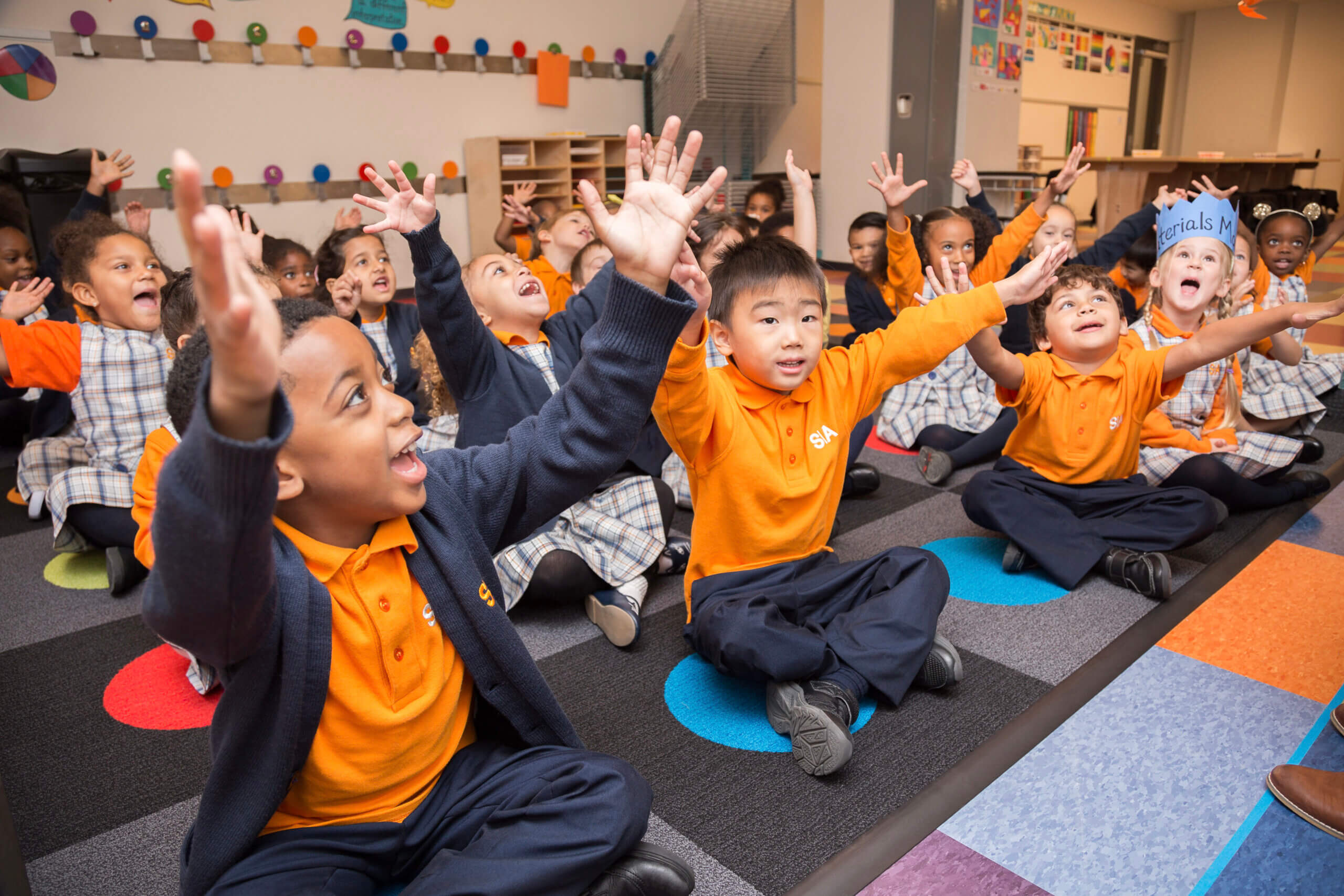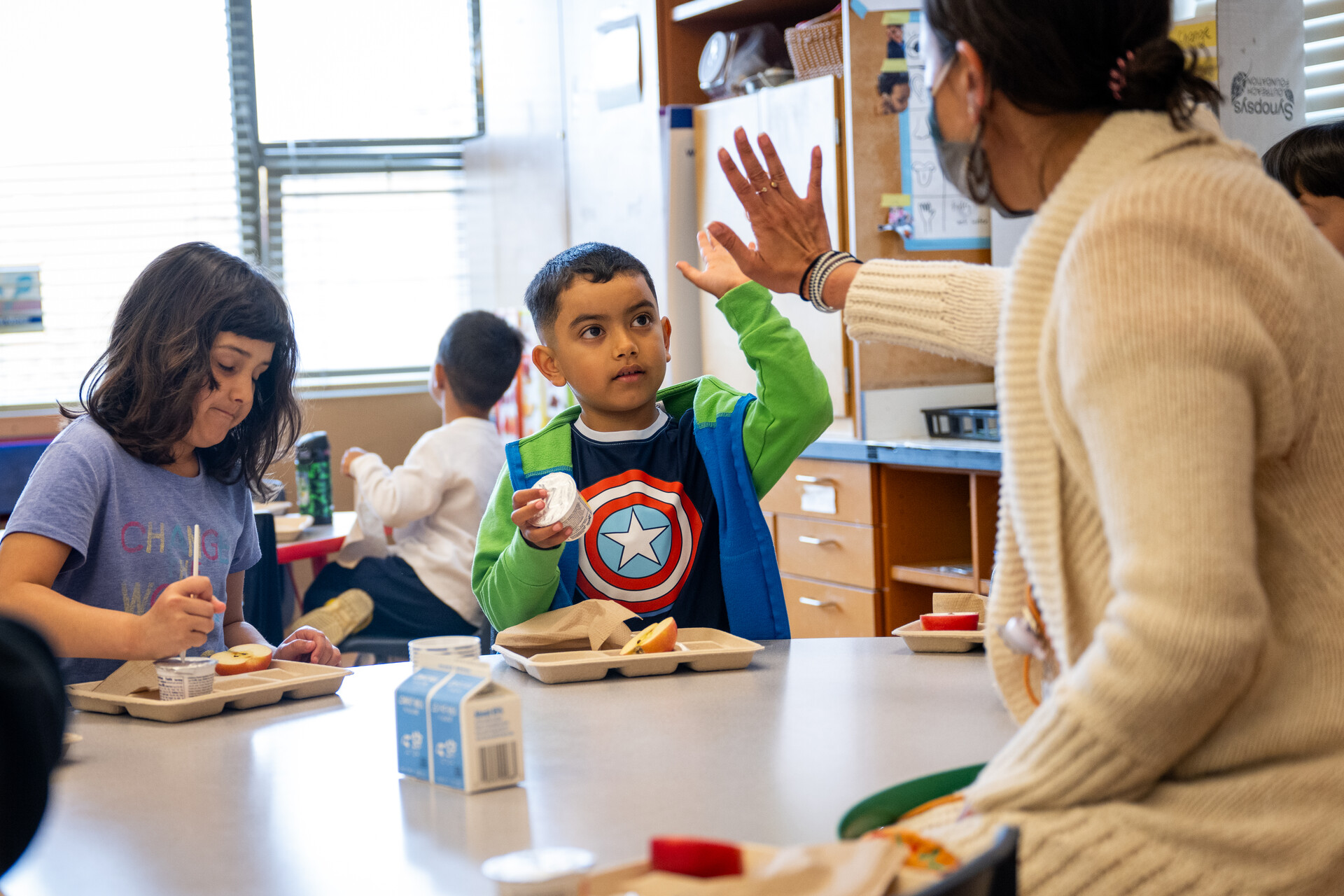How Private School programs enhance critical thinking and teamwork
Wiki Article
The Relevance of Interactive Activities in Elementary School Education
Interactive tasks play an important function in elementary school education. They engage pupils and improve finding out outcomes. With team jobs and hands-on experiments, pupils experience the material in a functional way. This approach accommodates diverse knowing designs and advertises vital abilities. The benefits extend beyond academics. Exploring the deeper influence of these activities exposes their value in forming young learners' futures. What changes occur when trainees actively take part?Enhancing Involvement Via Interactive Learning
Although typical teaching approaches have their benefits, interactive knowing greatly improves student involvement in elementary school education and learning. This method urges active engagement, enabling trainees to immerse themselves in the discovering procedure. By using group tasks, hands-on experiments, and technology-driven sources, teachers create an environment where trainees really feel a lot more connected to the product.Interactive discovering helps with collaboration amongst peers, fostering interaction skills and synergy. It additionally satisfies varied discovering styles, making sure that visual, auditory, and kinesthetic students can all prosper. Moreover, students are a lot more likely to preserve info when they actively take part, instead of passively obtaining knowledge.
This dynamic technique not only makes finding out enjoyable however likewise instills a sense of ownership in trainees regarding their academic trip. As they involve with the material, their interest and motivation to learn increase, laying a strong foundation for future scholastic success.
Establishing Important Believing Skills
Interactive discovering not just improves involvement but likewise functions as a catalyst for creating essential assuming skills in grade institution pupils. Via tasks such as problem-based understanding, arguments, and hands-on experiments, trainees are urged to evaluate info, evaluate various viewpoints, and formulate reasoned verdicts. These interactive experiences call for pupils to doubt assumptions, leading them to assume even more deeply regarding numerous subjects.
Interactive tasks commonly present real-world scenarios that challenge trainees to apply their knowledge artistically. By maneuvering through these challenges, they find out to identify relevant info and make notified choices. This process cultivates not only individual crucial thinking yet additionally encourages pupils to verbalize their believed procedures, enhancing their capacity to communicate effectively. Because of this, interactive learning settings cultivate a generation of essential thinkers that are much better prepared to deal with complex problems in their future scholastic and specialist endeavors.
Cultivating Collaboration Amongst Peers
Fostering cooperation among peers is essential in elementary school education, as it improves team effort and interaction abilities. Participating in group tasks helps students build trust fund and regard for one another, preparing for efficient partnership. Analytic with each other allows trainees to learn from each various other and establish a cumulative technique to challenges.Team Effort and Interaction Abilities
Effective synergy and communication skills are important components of an effective grade institution education and learning. Taking part in interactive activities motivates pupils to collaborate, share ideas, and address troubles together. Such experiences promote the development of crucial interaction abilities, permitting kids to reveal their ideas plainly and listen actively to others. Via synergy, students learn to appreciate diverse viewpoints, fostering a feeling of area and shared responsibility. Structured group tasks, whether in academics or imaginative jobs, improve peer interactions, teaching kids exactly how to bargain duties and fix problems. As a result, these skills not only contribute to a positive classroom environment but additionally prepare students for future collective endeavors in college and the workplace. In general, team effort and communication are foundational to holistic advancement in elementary school.Building Trust and Respect
Building trust fund and regard among peers acts as a keystone for effective collaboration in elementary school environments. They are extra most likely to engage proactively in group tasks when students feel valued and respected by their classmates. Interactive tasks, such as team projects and participating games, give opportunities for students to learn from each other, fostering a feeling of neighborhood. This setting encourages open communication, enabling pupils to express their ideas and viewpoints without worry of judgment. As trust fund constructs, trainees become a lot more ready to share duties and sustain each other's understanding. Ultimately, cultivating an ambience of count on and respect improves not just scholastic outcomes yet likewise social growth, outfitting students with important social skills for their future ventures.Problem-Solving With each other
Collaborative analytical involves students in critical reasoning and synergy, important skills for their personal and academic growth. When trainees collaborate to take on challenges, they find out to interact successfully, respect diverse point of views, and take advantage of each various other's staminas. This process boosts their capability to assess issues from different angles and establish imaginative options. Group activities, such as scientific research experiments or mathematics obstacles, promote active involvement and cultivate a sense of neighborhood. As pupils team up, they additionally develop social abilities, finding out to jeopardize and work out, which are crucial for future communications. Inevitably, analytic with each other grows an encouraging knowing environment, encouraging students to take possession of their education and learning while preparing them for collective ventures beyond the classroom.Encouraging Imagination and Development
Encouraging imagination and advancement in elementary school education can be greatly enhanced through hands-on understanding experiences. These tasks enable trainees to engage straight with materials and principles, fostering creative thinking. Additionally, collective team tasks can stimulate varied concepts and options, better supporting an imaginative atmosphere.Hands-On Understanding Knowledge
A wide variety of hands-on understanding experiences significantly enhances imagination and technology in grade institution education and learning. Involving students in reference sensible tasks enables them to apply academic understanding in real-world contexts, promoting much deeper understanding. By controling materials and devices, youngsters develop vital problem-solving abilities and discover to think outside the box. These experiences inspire interest and Resources motivate trainees to explore their passions further. Furthermore, hands-on tasks can connect various topics, connecting science, art, and math in significant means. This interdisciplinary method motivates trainees to see connections and assume creatively. Ultimately, hands-on understanding experiences nurture a generation of trendsetters, furnishing them with the skills and confidence required to take on future difficulties and contribute to society in one-of-a-kind ways.Collaborative Group Projects
Hands-on learning experiences normally bring about the consolidation of joint team projects, which play a vital function in cultivating creativity and development in quality school education. These jobs urge students to interact, sharing point of views and concepts, which boosts problem-solving abilities and crucial thinking. Through collaboration, pupils find out to communicate effectively and respect diverse perspectives, vital abilities for their future. Furthermore, group projects offer opportunities for students to experiment with different roles, increasing their flexibility and confidence. Participating in this cooperative atmosphere allows them to discover their imagination, pressing the boundaries of standard knowing. Ultimately, collective group jobs not only enrich the educational experience but additionally prepare pupils for real-world obstacles that need team effort and cutting-edge reasoning.Structure Self-confidence and Self-reliance
As students participate in interactive activities, they typically discover possibilities to develop self-confidence and freedom. These activities, whether they include hands-on projects, role-playing, or analytic tasks, encourage pupils to take initiative and share their concepts honestly. By taking part in such experiences, trainees find out to trust their abilities and make choices without depending only on guidance from peers or educators.Interactive tasks promote a sense of possession over learning. They establish critical thinking abilities and resilience when pupils deal with obstacles collaboratively or individually. This process not only boosts their understanding of the subject matter yet also empowers them to take threats in their learning journey.
As they navigate numerous interactive circumstances, students slowly lost their self-doubt, paving the method for raised self-worth - Kindergarten. Inevitably, these activities play a crucial role in supporting confident and independent learners, furnished to encounter future academic and personal challenges
Producing a Positive Class Environment
While cultivating a favorable class atmosphere is essential for effective discovering, it needs willful initiative from instructors to develop a check my source room where students feel risk-free, recognized, and engaged. A positive environment motivates cooperation, permitting trainees to reveal themselves without concern of judgment.Educators can attain this by establishing clear assumptions, promoting mutual regard, and recognizing individual contributions. Including interactive tasks further enhances engagement, making discovering more delightful and vibrant.
In addition, a caring atmosphere supports social-emotional development, as students find out to navigate relationships and deal with disputes. Teachers play an essential duty in modeling positive habits and reinforcing a society of generosity and inclusivity.
Often Asked Questions

Exactly How Can Parents Support Interactive Understanding in the house?
Moms and dads can support interactive discovering at home by providing interesting materials, urging hands-on jobs, incorporating instructional video games, promoting discussions, and developing a nurturing atmosphere that advertises inquisitiveness and expedition in their kids's learning experiences. (Private School)What Kinds of Interactive Activities Are The Majority Of Efficient?
Hands-on projects, collective video games, role-playing situations, and academic technology applications are amongst one of the most efficient interactive tasks. These engage students, enhance vital believing abilities, and promote teamwork, inevitably fostering a deeper understanding of different topics.Exactly How Do Interactive Tasks Accommodate Various Knowing Styles?
Interactive tasks involve visual, auditory, and kinesthetic students by incorporating varied techniques. These tasks promote recognizing with hands-on experiences, collaborative conversations, and visual aids, permitting trainees to absorb information according to their preferred understanding style.What Are the Costs Connected With Implementing Interactive Tasks?

Applying interactive activities sustains prices such as products, training for educators, innovation upgrades, and prospective facility adjustments. Budget restrictions can additionally impact the regularity and variety of activities supplied to students in academic setups.
Just How Can Educators Analyze the Influence of Interactive Discovering?
Teachers can evaluate the impact of interactive knowing with monitorings, pupil responses, performance metrics, and relative evaluation of test ratings prior to and after execution, guaranteeing a thorough understanding of involvement and expertise retention renovations.Via activities such as problem-based knowing, discussions, and hands-on experiments, students are motivated to evaluate details, evaluate various point of views, and create reasoned final thoughts. Interactive activities typically present real-world circumstances that test trainees to use their understanding artistically. Involving in interactive tasks motivates students to collaborate, share ideas, and fix issues together. Interactive activities, such as team projects and cooperative video games, supply opportunities for trainees to learn from one an additional, cultivating a sense of area. As trainees involve in interactive activities, they typically find opportunities to build confidence and freedom.
Report this wiki page